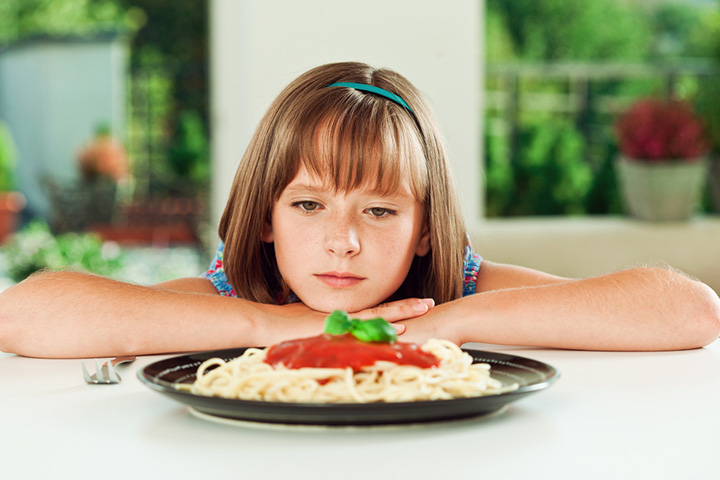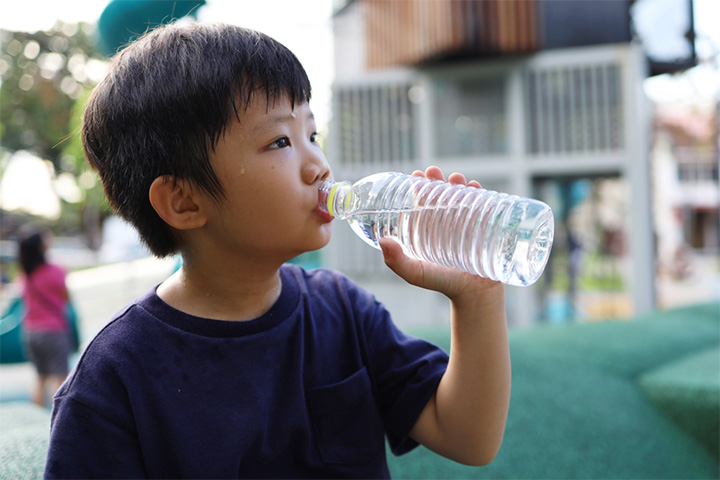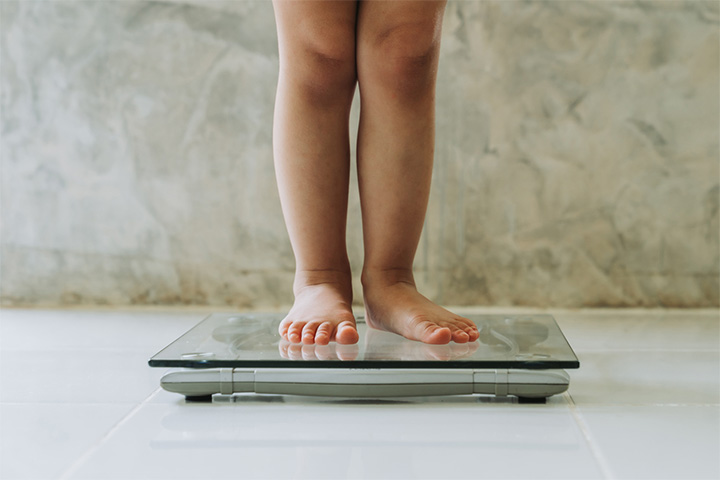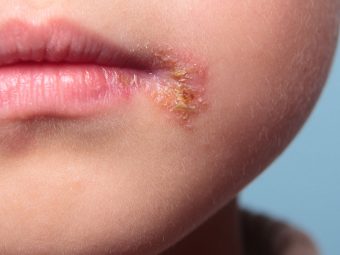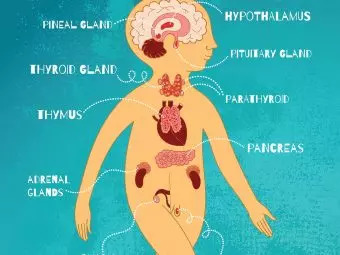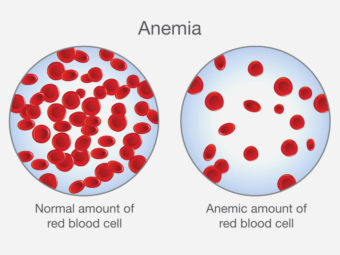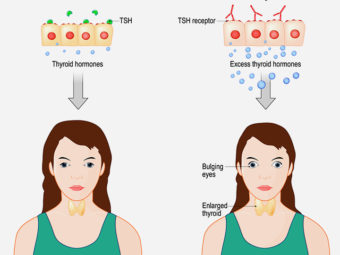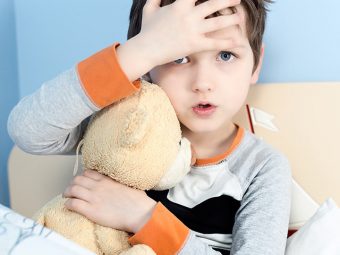
Image: ShutterStock
Weight loss in kids may be considered if they are obese or overweight.Weight loss is when the body loses fats, muscles mass, and fluids, leading to total loss of body mass. Parents may consider intentional weight loss for their overweight or obese child under pediatric guidance. However, unintentional weight loss is abrupt and occurs due to underlying reasons.
The causes for unintentional weight loss are usually benign, manageable, and temporary. But if the child shows other accompanying symptoms, such as sudden loss of appetite and vomiting, it is good to consult a doctor to avoid potential complications.
In this post, we present the various reasons behind weight loss in children, symptoms of abnormal weight loss, and how to manage weight loss healthily.
Possible Causes Of Unintentional Weight Loss In Children
Weight fluctuations among children are common and mostly benign. If your child loses a few pounds over time, you shouldn’t worry. Rapid development, puberty, and exam stress could be the reasons for it. However, the list doesn’t end here. There are several other reasons for unexplained weight loss in children(1).
- Poor eating habits:Children should eat a well-balanced diet for proper growth, development, and sustenance. When children don’t eat properly or eat fewer calories than required, they lose weight. This condition is temporary and resolves as soon as the child begins eating a calorically optimum,well-balanced diet.
- Increased activity:Children indulge in different exercises and activities that increase the energy requirements of the body. If these requirements are not met, the child could experienceweight loss. Parents should consult a qualified nutritionist to ascertain their child’s energy needs and get a suitable diet plan to maintain optimum nutrition levels.
- Stressful events:Divorce of parents, school or city change, and bullying at school are some of the stressful life events for children. Chronic stress accompanied by anxiety and depression can bring dietary changes, such as under-eating or loss of appetite, resulting in body weight loss. On the other hand, if children indulge in overeating or emotional eating, they can gain weight(2). Emotional eating due to stress is a common cause of childhood obesity.
Image: IStock
- Eating disorders:Eating disorders, such asanorexiaiXAn eating disorder marked by an unusually low weight and obsession with not eating food due to an intense fear of weight gain, are mental health problems that make a child indulge in an overly restrictive eating pattern that causes persistent and severe weight loss. It increases the risk of nutritional deficiencies, leading to further weight loss and growth problems. They are common in girls, especially in teenage.
- Short-term illness:Short-term illnesses, such as the common cold or stomach flu, can make children lose weight. Depending on the infection’s severity, weight loss can be mild or severe. Most children regain their lost weight as soon as their illness is treated and they are able to consume a regular diet. If they do not gain weight in given time of recovery, the doctor will look for underlying chronic illness.
- Oral or neurological issues:Children with oral problems, such ascleft palateiXCondition characterized by gaps in the roof of the mouthand neurological concerns, such ascerebral palsyiXMultiple disorders that collectively impact how well a person can move, balance, and maintain posture, can have feeding and swallowing difficulties. These difficulties could reduce their food intake, leading to unintentional weight loss(3).
- Gastrointestinal disorders: Gastrointestinal disorders, such as inflammatory bowel disease and celiac disease, often affect proper digestion and food absorption.Besides, they affect a child’s appetite, resulting in unintentional weight loss over time.
- Hormonal issues:Hormonal issues, such as Addison’s disease (adrenal insufficiency), hyperthyroidism, and type-1 diabetes, affect an individual’s metabolism, resulting in weight loss. Children with hormonal issues are likely to exhibit additional symptoms, such asabdominal pain, vomiting, and diarrhea, based on the disorder type.
Image: IStock
- Genetic disorders:Certaingenetic disorders, such as cystic fibrosis, could cause unintentional weight loss. Cystic fibrosis features unintentional weight loss despite the child having an excess appetite. Some genetic disorders affect the healthy levels of enzymes in the body, causing muscle and fat loss, leading to weight loss(4)(5).
- Medications:Medications for chronic or acute illnesses may cause weight loss as a side effect. If your child is on a certain medication and is losing weight consult your doctor. Anti-epileptic and some anti-depressants are often associated with weight loss(6).
- Substance abuse:Teens may indulge in substance abuse, such as narcotics and alcohol. Extended use of these substances could affect the physiological functions and suppress appetite, leading to unexplained weight loss(7).
 Did you know?
Did you know?Besides these conditions, heart and kidney problems could cause unexplained weight loss. Acute or progressive weight loss may also happen due to adverse health conditions, such as cancer. If you suspect your child is losing weight for no apparent reason, consult a pediatrician(8).
Signs And Symptoms Of Abnormal Weight Loss
Image: Shutterstock
Temporary weight fluctuations in children are a common phenomenon. However, they can become a matter of concern when accompanied by additional symptoms, such as(9):
- General weakness and lethargy
- Excessive sleepiness or insomnia
- Loss of appetite
- Vomiting, diarrhea,or constipation
- Dehydration and decreased urination
- Cough and sore throat
- Abdominal discomfort
- Fever
- Dizziness and fainting
 Quick fact
Quick factDiagnosis Of Unexplained Weight Loss In Children
Ascertaining the precise cause could help treat and manage weight loss in children. Your child’s pediatrician could recommend the following steps(10)(11).
- Physical examination: The doctor will check for physical signs and symptoms of a possible underlying problem. Parents could be asked about the medical and dietary history of the child. The doctor will calculate the child’s body mass index (BMI) and plot it against standard charts, such as CDC’s growth charts. If the child’s body weight falls in the lower than the 5th percentile range, they are considered underweight.
Image: IStock
- Diagnostic tests: The doctor may recommend blood tests, X-rays, and other scans, to determine deficiencies in nutrition and the cause of unintentional weight loss.
医生可能会建议额外测试基于the results of the preliminary tests. If the child is diagnosed with a health condition, they may be referred to a specialist for further assessment and treatment.
Treatment And Management Of Weight Loss In Children
The treatment and management of weight loss will depend on the cause of the condition.Common illnesses, such as flu, causing weight loss can be treated by the primary healthcare provider. Chronic and complex health conditions, such as inflammatory bowel disease, genetic disorders, and hormonal problems, could require long-term care under the supervision of a specialist.
Children with eating disorders and substance addiction may require psychiatric help and other therapies to improve eating habits and lifestyle choices. Treatment or adequate management of the underlying cause usually stops weight loss and lets the child regain lost weight through appropriate dietary supplementation.
 Be watchful
Be watchfulPotential Complication Of Unintentional Weight Loss
Image: IStock
Unattended long-term weight loss in children may increase the risk of problems such aschronic fatigue, anemia, and muscle and bone weakness. Depending on the underlying cause and extent of weight loss, the child could also experience nutritional deficiencies. The child may also face psychological issues, such as poor concentration and poor self-image. In extreme cases, it may even lead todevelopmental delaysand regressions.
Frequently Asked Questions
1. Is it normal for a child to lose weight?
Weight loss is normal when overweight children lose weight under a doctor’s guidance. Else, you should contact your child’s doctor to know the exact reason for weight loss. Children usually lose weight when they do not get enough calories or use more calories due to illness(12).
2. How much weight loss is normal in kids?
When following a childhood weight-management program, the child should not lose more than one or two pounds per week when supplemented with a healthy diet. Teenagers may achieve this goal by cutting down 500 calories a day, and those reaching puberty may cut down by 250 calories. This will ensure they healthily lose weight without affecting their growth(13).
3. What cancers cause unexplained weight loss in children?
Most childhood cancers might cause weight loss.LeukemiaiXA cancer of the blood, lymphatic system, and bone marrow.,lymphomaiXA cancer of the lymphatic system, the system responsible for the body’s immunity,nasopharyngeal carcinomaiXA cancer of the area behind the nose and above the back of the throat,neuroblastomaiXCancer that grows from multiple immature nerve cells, and central nervous system tumors are some of the common cancers(14).
4. Do children lose weight in a growth spurt?
Although most children may gain weight when experiencing a growth spurt, rapid growth in children may aid in reducing the obesity tag due to increased height and leanness in the tissue mass.
5. What is considered rapid weight loss in kids?
A rapid weight loss could be stressful and physically demanding for a child. Though occasional and planned weight loss is normal, rapid and excessive weight loss within a short period, accompanied by other issues, should be evaluated promptly in children (15).
6. What foods help a child gain weight?
Hannah Whittaker, an England-based pediatric and pregnancy dietitian, says, “If there are concerns with a child’s weight and it is not following the correct centile line, then I would advise parents on fortifying their child’s diet. Some examples of food fortification are adding high-energy foods such as butter, cheese, and cream to meals. I would also advise including nut butter and higher energy-dense foods such as avocado and oily fish to the diet.”
渐进的或轻微的减肥的孩子是很常见的they are in the growing stage, and different factors such as puberty, physical activity, or school stress can influence it. It can be managed in most cases with lifestyle changes, such as healthy eating. But rapid and abnormal weight loss is what you should look out for since it can indicate an underlying condition that requires your attention and medical intervention. So stay mindful of your child and consult your pediatrician for timely diagnosis and treatment of such issues.
Key Pointers
- Poor eating habits, short-term illnesses, stressful events, or eating disorders are common causes of unintentional weight loss in children.
- Loss of appetite, diarrhea, lack of energy, and fainting can often be associated with unintentional weight loss.
- It is important to diagnose and treat unintentional weight loss in children to avoid complications such as anemia, bone weakness, and growth regressions.
References:
2. Moritz Herle et al.;Emotional over- and under-eating in early childhood are learned not inherited; NCBI
3.Feeding and Swallowing Problems (Dysphagia); Cincinnati Children’s
4.Niemann-Pick Disease Information Page; NIH
5.Cystic Fibrosis & Nutrition; GI KIDS & NASPGHAN
6.Drugs That Affect Body Weight, Body Fat Distribution, and Metabolism; NCBI
7.Substance use recovery and diet; U.S National Library Of Medicine
8.Weight Loss.American Academy of Pediatrics
9.Unexplained Weight Loss in Children and Teens; Harvard Health Publishing
10.Defining Childhood Obesity; CDC
11.About Child & Teen BMI; CDC
12.Unexplained Weight Loss in Children and Teens; Harvard Health Publishing
13.Losing Weight Safely, Sensibly, Successfully; American Academy of Pediatrics
14.Signs and Symptoms of Childhood Cancer: A Guide for Early Recognition; American Family Physician
15.Weight Loss in Children Can Be a Danger Signal; Rady Children’s Hospital–San Diego.
16.Pediatric and Adolescent Abnormal Weight Loss; Children’s Health



